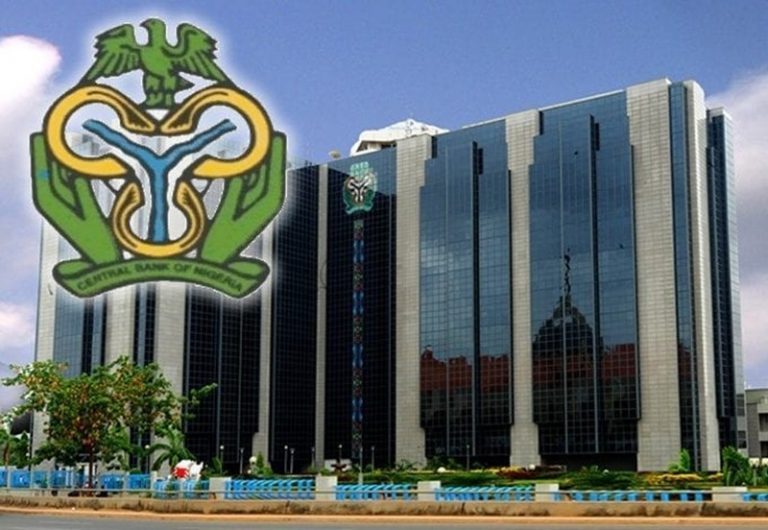
The Central Bank of Nigeria (CBN) has claimed that without its aggressive policy interventions, inflation in the country could have soared to 42.81 percent by December 2024.
The CBN Governor, Yemi Cardoso, made this assertion at the 2025 Monetary Policy Forum held in Abuja on Thursday. The forum, attended by ministers, economic policymakers, and private sector players, served as a platform for the apex bank to defend its monetary policies amid mounting economic hardships.
According to Cardoso, throughout 2024, the CBN implemented a series of decisive policy measures aimed at curbing inflationary pressures and stabilizing the economy. Among these measures was the cumulative 875 basis point increase in the Monetary Policy Rate (MPR), bringing it to 27.50 percent. Additionally, the Cash Reserve Ratio (CRR) for depository corporations was raised by 1,750 basis points to 50 percent. Other key policies included the adjustment of the asymmetric corridor around the MPR, all of which, according to Cardoso, were necessary to contain inflation.
Register for Tekedia Mini-MBA edition 19 (Feb 9 – May 2, 2026).
Register for Tekedia AI in Business Masterclass.
Join Tekedia Capital Syndicate and co-invest in great global startups.
Register for Tekedia AI Lab.
Despite these interventions, Nigeria’s inflation rate has remained stubbornly high, reaching 34.80 percent in December 2024, according to the National Bureau of Statistics (NBS). While this figure is below the hypothetical 42.81 percent level suggested by the CBN, it remains one of the highest inflation rates recorded in the country’s recent history. Many Nigerians continue to feel the impact of soaring prices of goods and services, despite the CBN’s reassurances that its policies have prevented a worse economic crisis.
Foreign Exchange Market Reforms and Increased Remittances
Cardoso also projected that diaspora remittances would increase to N31.787 trillion once the fourth-quarter data for 2024 is released. This follows significant reforms in the foreign exchange (FX) market, which he claimed have enhanced efficiency. According to him, remittances through International Money Transfer Operators (IMTOs) surged by 79.4 percent in the first three quarters of 2024, reaching $4.18 billion, compared to $2.33 billion in the same period in 2023.
The CBN governor further emphasized that the bank had cleared a backlog of FX commitments totaling $7 billion, a move aimed at restoring investor confidence and improving FX liquidity. He also referenced the removal of restrictions on 41 items previously banned from accessing the official FX market since 2015.
The restrictions, which were lifted in 2023, were initially introduced to encourage local production but had led to a thriving black market and a widening exchange rate gap.
Cardoso pointed to additional reforms such as the Nigeria Foreign Exchange Code, which aims to promote integrity, fairness, transparency, and efficiency in the FX market. Built on six core principles, the FX code represents a binding commitment from financial institutions to rebuild trust in the system.
“This is to strengthen the resilience and global competitiveness of Nigeria’s banking sector, positioning it to support the ambition of a one trillion-dollar economy,” Mr Cardoso said.
Monetary Tightening and the Push for a $1 Trillion Economy
In a bid to strengthen Nigeria’s financial sector, the CBN introduced new minimum capital requirements for banks, which will take effect by March 2026. This measure, according to Cardoso, is designed to enhance the resilience of Nigeria’s banking sector, ensuring it can support the country’s ambition of becoming a $1 trillion economy in the near future.
However, the central bank’s tight monetary policies have drawn mixed reactions. While they may help stabilize the economy in the long run, it is argued that they have significantly reduced liquidity in the financial system, making it harder for businesses to access credit. The high MPR of 27.50 percent has raised borrowing costs, leading to concerns that businesses and consumers will struggle under the weight of expensive loans.
However, Cardoso remained optimistic about Nigeria’s economic trajectory in 2025. He stated that achieving macroeconomic stability would require sustained vigilance and a proactive monetary policy stance. He also stressed the importance of coordination between fiscal and monetary authorities to ensure that disinflation efforts are effective.
“As we move forward into 2025, I am optimistic that we have turned a corner and that disinflation is within reach. However, we must remain committed to bold, coordinated policy measures to consolidate our progress,” Cardoso said.
The CBN’s Deputy Governor for Economic Policy, Mohammed Abdullahi, also defended the bank’s FX liberalization policies, describing them as a pivotal step in unifying Nigeria’s fragmented exchange rate system. Before adopting the flexible exchange rate regime, he noted that the average exchange rate premium stood at an alarming 62.33 percent between January and May 2023.
However, after the implementation of the new policy, this premium was drastically reduced to 0.10 percent by June 2023, signaling progress toward market convergence.
Reality Check: Has the CBN’s Strategy Worked?
While the CBN insists that its policies have averted an even worse inflation crisis, the reality on the ground tells a more sob story. Nigerians continue to face rising food prices, high transport costs, and an overall increase in the cost of living. The FX crisis persists, as the naira remains volatile, despite attempts at stabilization. Many businesses struggle under the weight of high interest rates, and consumer purchasing power has continued to decline.
Moreover, while the CBN celebrates a 79.4 percent rise in remittances, it remains unclear how much of this increase can be directly attributed to the bank’s reforms versus global economic factors driving higher remittance flows. Similarly, while the clearance of $7 billion in FX backlogs has been praised, businesses still face challenges in obtaining foreign exchange for imports.
Cardoso’s optimism that “disinflation is within reach” might be reassuring for policymakers, but for the average Nigerian, inflation remains a harsh daily reality.




cbn and gtbank and jaizbank